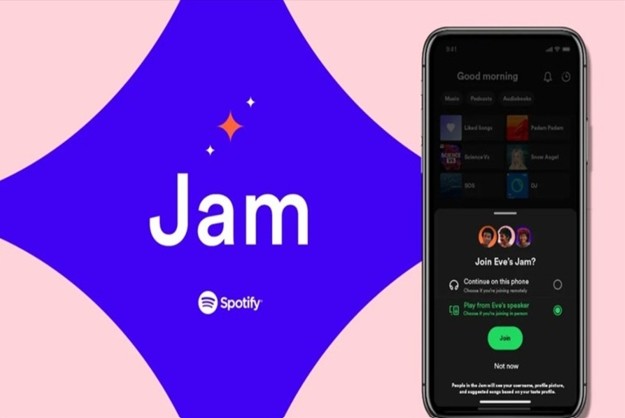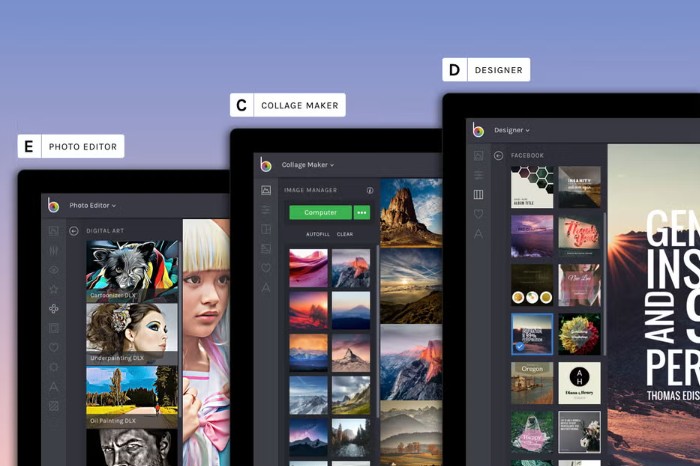Best Selling Products
Spotify Breathes New Life: Adds Subgenre Chip, More Diverse Music Discovery
Nội dung
Spotify Jam lets you schedule group listening sessions with friends and family anywhere. You can play music from your device, share control of the playlist, let everyone in the group add their favorite songs, comment, vote on which song should play next, and more.

Spotify has become one of the most popular music streaming platforms in the world, with hundreds of millions of users, both those who have been with the service for years and those who are new to the digital music ecosystem. Among the many features that Spotify offers, Spotify Jam is a prime example of how the platform has changed the way people enjoy music together. However, along with its beloved community features, Spotify’s ability to discover new music has often been the subject of complaints in user groups. Many people believe that Spotify’s recommendation algorithm often repeats popular songs, making the discovery experience lose its novelty.
Faced with this reality, Spotify seems to be experimenting with new innovations to inspire exploration and take listeners out of the “loop” of familiar songs. Recently, information about the platform adding additional chips to adjust playlists has attracted the attention of the Reddit user community and technology forums. This opens up the expectation that Spotify will bring a more diverse, rich and personalized music discovery experience than ever before.
1. Spotify Jam Features
Before diving into the new discovery chips, it’s worth taking a look at why Spotify has remained popular over the years, despite complaints about its music recommendations. One of the things that has helped Spotify retain millions of paying subscribers is its wide variety of community features, with Spotify Jam being a prime example.
Spotify Jam allows users to schedule group listening sessions with friends and family anywhere. You can play music from your device, share control of the playlist, let everyone in the group add their favorite songs, comment, vote on which song should play next, and more. This interaction turns listening sessions into a “music party”, even when people are not sitting next to each other.
.png)
In doing so, Jams help Spotify maintain its “social” nature, something that competitors like Apple Music and Tidal have yet to fully tap into. Especially during a pandemic or when users can’t meet in person, Jams become a powerful tool for connecting mentally.
However, as most users remain loyal to familiar playlists, the habit of listening to music in a “traditional” way also arises. At this point, the ability to discover new music will play a decisive role in whether Spotify can retain users in the long term or not.
Undeniably, Spotify is a pioneer in applying AI and machine learning to analyze user behavior, thereby suggesting the most suitable playlists, albums, and artists. Features such as Discover Weekly, Daily Mix, and Release Radar have been praised as tools that "open the door" to an endless music library, introducing listeners to new names.
However, over time, many people have realized that Spotify's recommendation system sometimes becomes "conservative". Instead of "drawing a path" for listeners to find hidden gems in the huge music library, Spotify often repeats popular hits or artists that are too familiar.
Upgrade Spotify Premium Genuine Cheap Price
Several reasons are given:
User listening habits data is limited by the saved playlists themselves.
The algorithm prioritizes maximizing engagement and retention, so it suggests “safe” and easy-to-listen-to content.
New genres, sub-genres, or niche musical styles are often pushed to the back burner.
As a result, listeners can get stuck in a “musical bubble,” listening to the same artists over and over again, which reduces their interest in discovery. This can be a huge disappointment for those who love new things, or simply want to escape their musical “comfort zone.”
2. Sub-genre chips begin to appear
Amid this, an interesting recent discovery suggests that Spotify is listening to this feedback. On Reddit, an account named kwabb shared a screenshot showing the new chips appearing in a Spotify-created R&B Mix playlist.
.png)
Traditionally, playlists like R&B Mix have been personalized based on a user’s R&B listening habits. But the reality is that our tastes aren’t always consistent. One day, you might be into rocking Alternative R&B, while the next day you might want to listen to smoother, more romantic Neo Soul. If a playlist is limited to a broad category like “R&B,” the experience can be out of sync with the actual mood.
To fix this, Spotify has quietly added chips like “Discover More,” or subgenres: Alternative R&B, Neo Soul, Pop R&B, etc. These chips appear right above the playlist, acting as custom filters.
3. How does the sub-category chip work?
According to Reddit users, the special thing about these chips is that when you choose which chip, the playlist will be completely updated, not just simply filtering out existing songs.
This is different from how it used to work. Normally, when you search for an R&B Mix playlist, Spotify just changes the order or adds a few similar songs. But with the extra chip, tapping “Alternative R&B” is like asking Spotify, “Show me a completely different R&B mix.”
With chips like “Discover More,” Spotify can add less widely released tracks, indie artists, or records buried deep in its catalog, opening up more opportunities for users to find “hidden gems.”
.png)
As of now, these chips are only available in limited quantities. Many Spotify users in different countries have shared that they have not seen the new chips in their accounts, even when accessing the R&B Mix playlist or similar playlists like Pop Mix, Rock Mix.
A Spotify representative also confirmed this through a statement:
“At Spotify, we regularly run a number of experiments aimed at improving the user experience. Some of these experiments will eventually make their way into our broader user experience, and others serve as important learnings. We have no further news to share at this time.”
This statement shows that Spotify is still in the A/B testing phase, gathering feedback and measuring engagement rates with the chips, before deciding whether to scale up.
4. Why is the sub-genre chip a big step forward?
From a technical perspective, the addition of additional filter chips may sound simple, but it's a significant change to how Spotify organizes and "slices" its massive music library.
Previously, algorithms typically worked on large sets of data: artist names, albums, major genres. Deeper personalization required Spotify to:
Categorize music into detailed sub-genres.
Assign accurate tags based on sound, rhythm, and melody characteristics.
Automatically update new tracks to the correct sub-genre, ensuring no relevant content is missed.
Optimize the music playback system so that when the listener selects a chip, the entire backend must respond instantly with the new playlist.
This means Spotify is pushing the boundaries of automatic categorization, while giving users the tools to actively control their listening experience, rather than just “passively” relying on AI recommendations.
.png)
Adding extra chips is seen as a smart move for Spotify to retain its discerning listeners – the group that often complains the most about repetitive music recommendations.
Not only that, this is also a strategy for Spotify to compete with TikTok Music, YouTube Music or emerging platforms - competitors that have been strongly exploiting the factors of "unexpected content recommendations", "viral" or "trend creation".
In the long term, if widely deployed, the subsystem could:
Help users discover new “music lands” without having to leave the app to find music on other platforms.
Increase average listening time, as users get bored less.
Create more opportunities for indie, niche genre artists to reach audiences that were previously difficult to reach.
.png)
While the new chip is still experimental, if you're a true music nerd and want to get the most out of Spotify's discovery capabilities right now, here are some tips to try:
Turn off “Smart Shuffle”: Some users have shared that when Smart Shuffle is turned off, Spotify tends to get out of the “familiar songs” loop and suggest newer tracks.
Regularly delete old playlists, create new playlists according to mood or season.
Actively follow indie artists or community playlists.
Spend time listening to playlists created by other users, as they are often highly revelatory.
Don't be afraid to use the Radio feature: pick any song, turn on Radio and Spotify will automatically play related songs.
Clearly, Spotify isn’t sitting idly by in the face of complaints from loyal users. The experiment with subgenre chips shows that the platform understands that music isn’t just about listening to what’s familiar, but also about exploring new things. When listeners have more control, the possibilities for connecting with artists and fans are more open. And in a world where music apps are fiercely competitive, small features that address real needs are what keep users coming back for more.
Let’s wait and see if the extra chips really “revolutionize” the music discovery experience for hundreds of millions of people. And who knows, maybe one day soon, we will have an “open” Spotify, leading you to tunes you’ve never heard before, but will love at first sight.












































